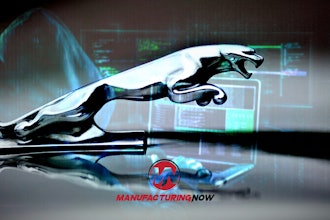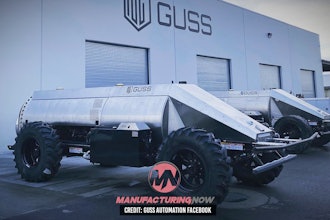Where there’s a farm, there’s a good chance there’s also a tractor or two and a decent-size group of cows. And while machines and animals on a farm already operate in a mutually beneficial economic model, a new technology could take the relationship between cow and tractor to new, sustainable heights.
British company Bennaman has partnered with New Holland to build a prototype tractor that runs on livestock manure, or cow dung. The T7 Methane Power LNG (short for liquified natural gas) packs about 270 horsepower and provides similar amounts of power and torque as a comparable diesel-engine tractor, all while reducing a farm’s carbon footprint.
Of course, the tractor doesn’t just let you shovel organic fuel into the tank like it’s a Mr. Fusion. There’s a fairly involved process for turning cow poop into a gas.
According to Bennaman, the energy independent sustainable farm system involves collecting livestock manure and transferring it to a covered slurry lagoon or tank. From there, the fugitive methane is captured before being purified and converted into liquefied methane using a processing unit. The company said a liquification unit can be bolted on to an existing compressed natural gas processing unit, which would work out well for farms that already produce their own biomethane.
Once the cow dung vapors have been corralled, Bennamann’s on-board cryogenic storage tank provides the -162°C temps needed to maintain the methane as a liquid and provide clean power for the T7. The technology also allows LNG to be transported, so farms without on-site fuel production can have it shipped in.
Bennaman estimates that when its prototype tractor is integrated within the on-farm liquid fugitive biomethane production process, it’s possible for an operation’s overall carbon footprint to be “better than zero.” On top of that, the T7 runs quieter than a diesel counterpart, so it could be better suited for operations near more densely populated areas and for not scaring the animals.
As if running tractors on cow dung wasn’t advantageous enough already, it could also let farms monetize excess LNG. That’s like turning feces into free money, waste into winnings, crap into cold hard cash.






















